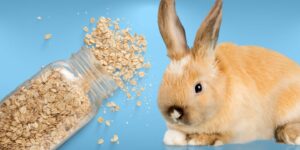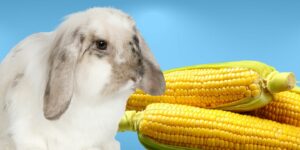The short answer is no, rabbits should not eat popcorn. While rabbits are herbivores and can eat a variety of plants, popcorn is not a healthy food for them to eat. To understand why this is the case, let's take a deeper look at rabbits' dietary needs and the risks of feeding them popcorn.
Risks of feeding rabbits popcorn
High carbohydrate content
Popcorn is a type of grain, and rabbits should not eat a lot of grains because they are high in carbohydrates and can lead to weight gain. Rabbits' digestive systems are designed to process fiber-rich foods, and a high-carbohydrate diet can potentially cause health issues.
Choking hazard
Size and shape of popcorn kernels
One major concern with feeding rabbits popcorn is the potential choking hazard posed by the size and shape of popcorn kernels. Rabbits can easily choke on these small, hard pieces, which can lead to serious health consequences.
Rabbits' sensitive digestive systems
Rabbits have sensitive digestive systems that require a specific balance of nutrients and fiber to function properly. Consuming popcorn can disrupt this balance and potentially cause gastrointestinal upset or worse.
Harmful additives
Butter
Butter, a common topping for popcorn, is not suitable for rabbits. Rabbits' digestive systems are not designed to process high-fat foods, and butter can lead to digestive issues and obesity.
Salt
Another common addition to popcorn, salt, can be harmful to rabbits. Excessive salt consumption can cause a rabbit's kidneys to work overtime and potentially lead to kidney issues.
Artificial flavorings and preservatives
Popcorn often contains artificial flavorings and preservatives, which can also be harmful to rabbits. These additives can cause allergic reactions or gastrointestinal upset and should be avoided.
The importance of a proper rabbit diet
Hay as a staple food
Types of hay suitable for rabbits
Hay should be the foundation of your rabbit's diet, as it provides essential fiber and nutrients. The best types of hay for rabbits include Timothy hay, oat hay, and orchard grass hay.
Benefits of hay for rabbits' health
Hay is crucial for maintaining healthy digestion and dental health for rabbits. The chewing action required to break down hay helps to grind down their constantly growing teeth, preventing dental problems.
Fresh vegetables
Suitable vegetables for rabbits
Rabbits should eat plenty of fresh vegetables, such as leafy greens, carrots, bell peppers, and celery. These provide necessary vitamins and minerals and can be a great addition to your rabbit's diet.
Vegetables to avoid
Some vegetables, such as iceberg lettuce and cabbage, should be avoided due to their high water content and low nutritional value.
Pellet food
Choosing high-quality pellets
Rabbits should also be fed a small amount of high-quality pellet food. Look for pellets made from Timothy hay and avoid those with added sugars or seeds.
Proper pellet portion sizes
A general guideline for feeding pellets is no more than 1/8 cup per 5 pounds of body weight. Overfeeding pellets can lead to weight gain and health problems.
Tips for maintaining a healthy rabbit diet
Introducing new foods gradually
When introducing new foods to your rabbit's diet, do so gradually to avoid causing digestive upset.
Monitoring rabbits' weight and overall health
Keep an eye on your rabbit's weight and overall health to ensure they are maintaining a balanced diet and staying healthy.
Providing fresh water at all times
Rabbits should have access to fresh water at all times to stay hydrated and maintain good health.
Recognizing signs of gastrointestinal upset
Monitor your rabbit for signs of gastrointestinal upset, such as diarrhea or constipation, and consult a veterinarian if you notice any issues.
Alternatives to popcorn for rabbit treats
Homemade rabbit treats
Ingredients to use
Healthy homemade rabbit treats can include ingredients such as pureed fruits, leafy greens, and oats.
Recipes and preparation methods
You can find many recipes and preparation methods for homemade rabbit treats online, ensuring your rabbit gets a healthy and tasty treat.
Store-bought rabbit treats
What to look for in a healthy rabbit treat
Choose store-bought rabbit treats made from natural ingredients and without added sugars or artificial additives.
Recommended brands and products
Some recommended brands for healthy rabbit treats include Oxbow, Kaytee, and VitaKraft.
Conclusion
In conclusion, rabbits should not eat popcorn. It is high in carbohydrates, poses a choking hazard, and often contains harmful additives like butter, salt, and artificial flavorings. Instead, provide your rabbit with a healthy diet consisting of hay, fresh vegetables, and a small amount of high-quality pellet food. By doing so, you'll ensure your rabbit stays healthy and happy.




